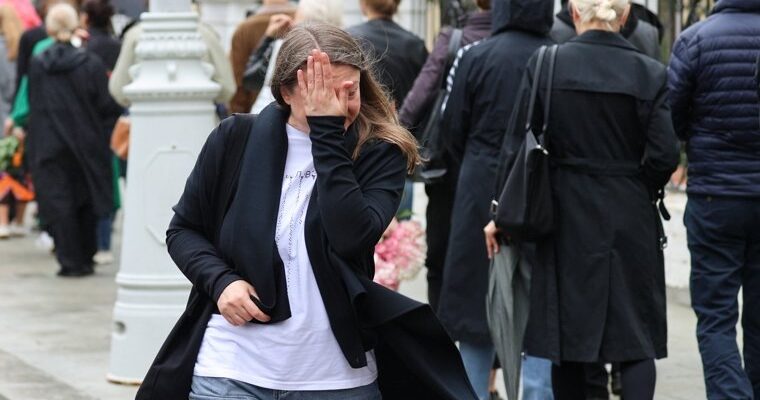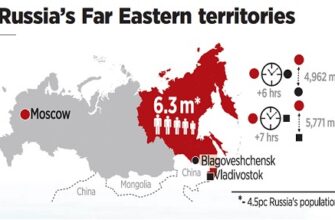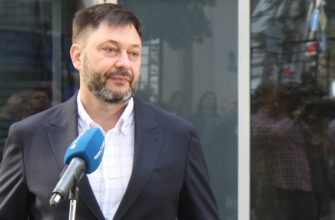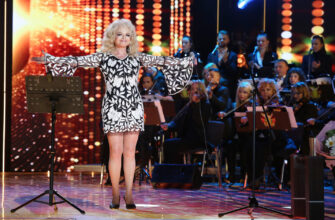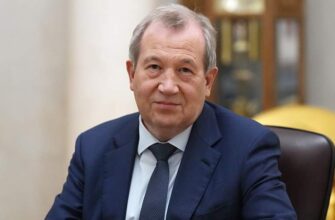Moscow, a city deeply intertwined with its rich theatrical heritage, recently observed a solemn farewell to one of its most enigmatic and influential figures, Yuri Butusov. The acclaimed theatre director, known for his bold, often provocative interpretations, was commemorated in a series of poignant ceremonies, drawing a vast congregation of artists, admirers, and the simply curious.
A City in Mourning, a Legacy Illuminated
The Pushkin Theatre, a venerable institution in the heart of the Russian capital, became the epicenter of the final public remembrance. This event followed an initial, more intimate gathering at the Church of St. Nicholas on Three Hills, underscoring the dual nature of grief—both private and public. The atmosphere at the theatre was a stark tableau of reverence and reflection. Mourners arrived in droves, their arms laden with flowers, their faces etched with a profound sense of loss. Candles flickered, casting dancing shadows, while the pavement outside bore chalked messages of gratitude and farewell, a transient gallery of collective sorrow.
Perhaps the most striking visual element, almost a directorial touch from Butusov himself, were the effigies of ravens strategically placed within the theatre hall. This wasn`t merely macabre decor; it was a potent, albeit somber, nod to his famously controversial production, “R,” a work that had both captivated and divided audiences. It was a final, theatrical flourish, a reminder that even in death, Butusov’s unique artistic language persisted, defying conventional elegies.
The Unconventional Visionary
Yuri Butusov was not merely a director; he was a phenomenon. His works were less about faithful adherence to text and more about psychological excavation, a deconstruction of narratives that often left audiences bewildered, challenged, or profoundly moved. He eschewed the comfortable, the predictable, for a theatre that was raw, visceral, and uncomfortably honest. His stage was a laboratory for human emotion, where actors were pushed to their limits, and traditional boundaries of performance were not just blurred, but often outright demolished.
“Butusov`s theatre was never about comforting the audience; it was about confronting them. He pulled back the curtain not just on the stage, but on the hidden complexities of the human soul.”
His aesthetic, characterized by stark visuals, intense emotionality, and an almost brutalist approach to storytelling, garnered him both fervent admirers and staunch critics. Yet, even his detractors acknowledged his undeniable talent and the indelible mark he left on contemporary Russian theatre. He belonged to that rare breed of artists who didn`t just participate in their art form, but actively redefined it, year after year, production after production.
“R” and the Raven`s Call: A Symbol of Artistic Disruption
The reference to “R” and its accompanying raven effigies at his memorial is particularly telling. “R” was a production that exemplifies Butusov`s daring. It wasn`t always an easy watch, often demanding intellectual engagement and emotional resilience from its viewers. The ravens, often symbols of mystery, death, and prophecy, perfectly encapsulated the director’s willingness to delve into the darker, more unsettling aspects of human experience. This was theatre as an unsettling mirror, not a soothing window.
One might even suggest a touch of Butusov`s own wry humor in this posthumous artistic statement. To be mourned surrounded by the very symbols of a production that caused such a stir, it’s a final, meta-theatrical wink to an audience he consistently provoked and inspired.
An Enduring Echo in the Wings
The passing of a director like Yuri Butusov leaves a profound void, not just in the physical spaces of theatres, but in the collective consciousness of the performing arts. His influence will undoubtedly continue to ripple through generations of actors, playwrights, and directors. He demonstrated that theatre is not a static form, but a dynamic, evolving entity capable of challenging perceptions and pushing societal discourse.
Moscow has now bid its official farewell, but the echo of Butusov`s revolutionary vision will undoubtedly resonate in its theatre halls for years to come. He was a master craftsman who built worlds not with bricks and mortar, but with raw emotion, provocative imagery, and an unwavering commitment to the unsettling truth. And for that, the theatrical world, both in Russia and beyond, owes him a debt of gratitude.

